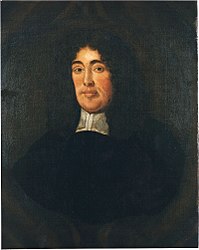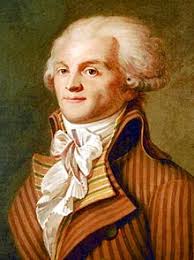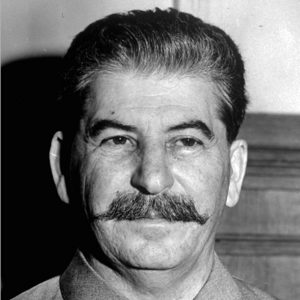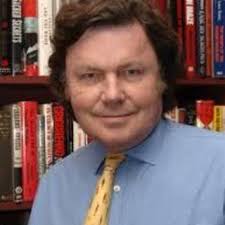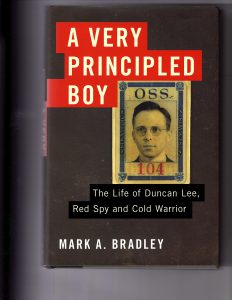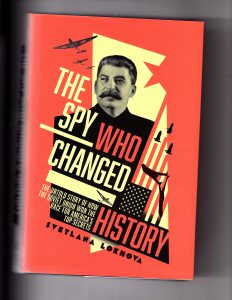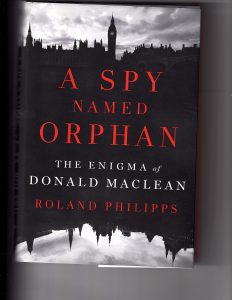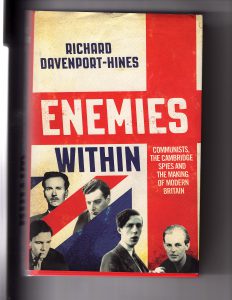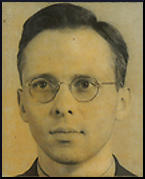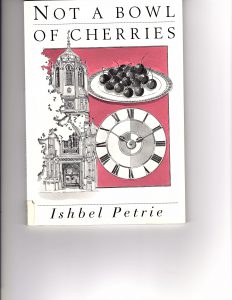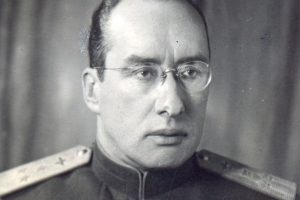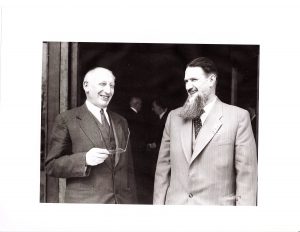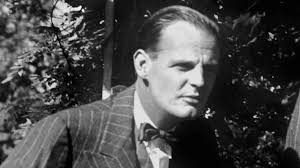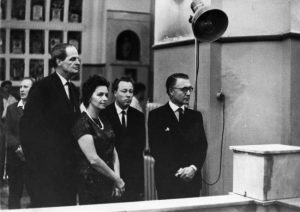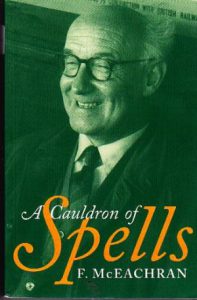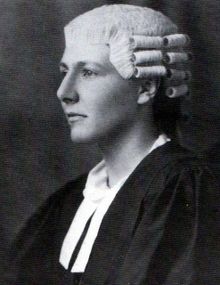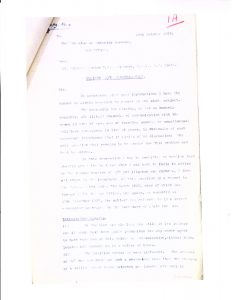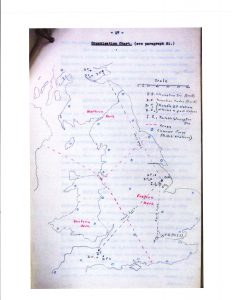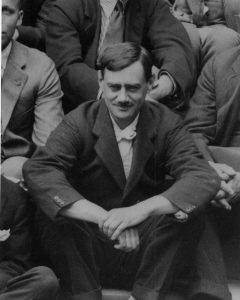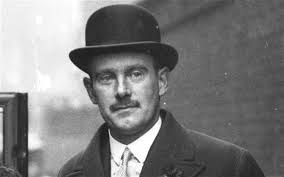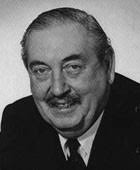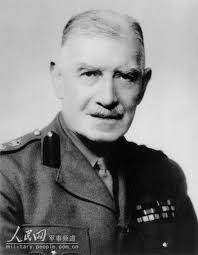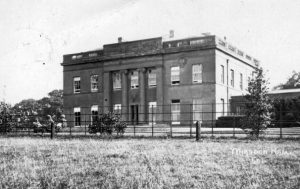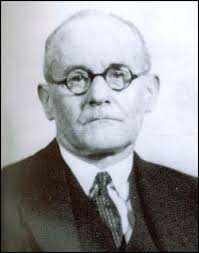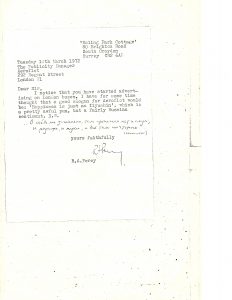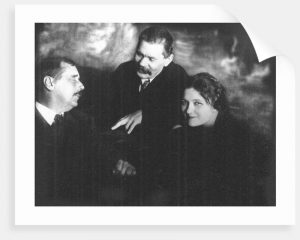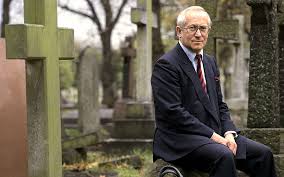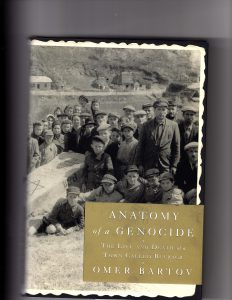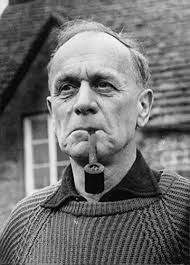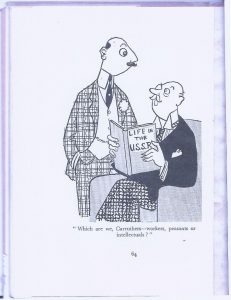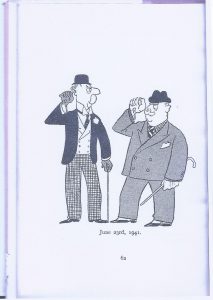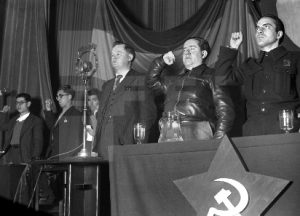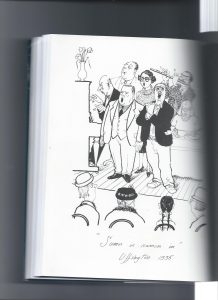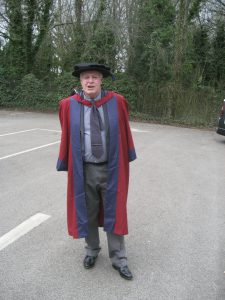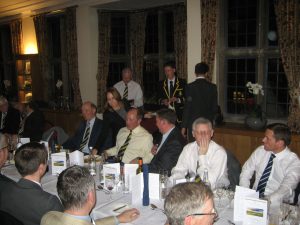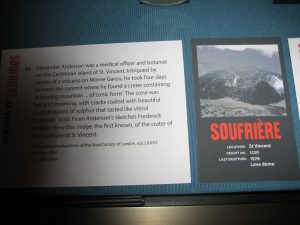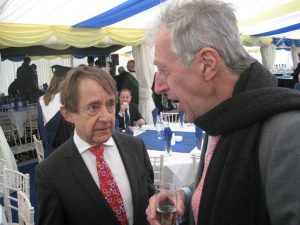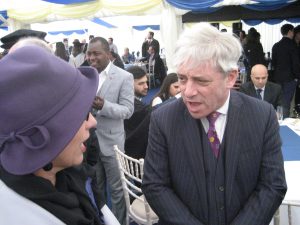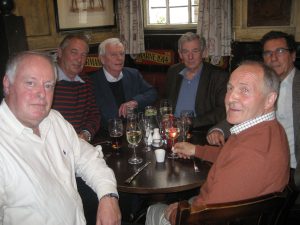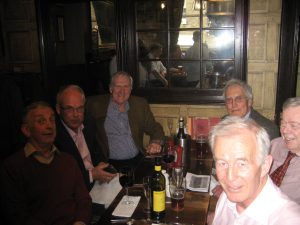And an update on ter Braak . . .
Some Famous Conspiracy Theorists (Nos 17-20 in a series of 50)
A Lesson from Salisbury
As most readers familiar with the Skryalin affair will know, recently two GRU officers masquerading as tourists with an enthusiasm for Early English architecture were shown, through the means of a surveillance camera, sauntering through Salisbury. Soon after those pictures were published, I was interested to read the following statement in the New York Times: “Matthew Dean, the head of Salisbury’s City Council and owner of a local pub, the Duke of York, said he hoped it would put to rest conspiracy theories circulating about the crime.” The implied hope behind Mr. Dean’s statement was that a more convincing theory, one backed up by more solid evidence, would oust alternative explanations that lacked any real factual basis, and that tended to exploit hidden fears and motivations.
I do not know to which other theories Mr. Dean was referring (poison planted by British intelligence? release of a germ from Porton Down by a disgruntled employee?), but the obvious implication was that all ‘conspiracy theories’ are inherently false and deceptive. ‘Conspiracy theory’ is a pejorative term. Yet MI5, in trying to work out what had happened, and conjecturing that the attack was probably engineered by some part of Russian ‘intelligence’, would have had to create some kind of theory about how Novichok found its way to the back-streets of Salisbury. Whether the action of a single deranged agent (which in truth by definition could not be a conspiracy), or a deed plotted deeply in the conference-rooms of the Lubianka, any hypothesis would presumably come under the category of ‘conspiracy theory’. Yet the strong evidence that the perpetrators had been identified would in fact make this particular ‘conspiracy theory’ a winner over inferior versions. With the GRU now nailed, the conspiracy is almost certainly proven: the ‘theoretical’ aspect of it is retired. What happened next, however, was that the established facts became a conspiracy theory of their own: Marcello Foa, the new chairman of Italy’s state broadcaster RAI, was reported in the New York Times on September 28 as saying that he doubted the evidence that Moscow’s operatives poisoned Skryalin, as it was ‘too obvious’.
You can read an informative article about conspiracy theories at https://en.wikipedia.org/wiki/Conspiracy_theory. Such theories not based on any tangible evidence are mostly the dreamchildren of the ambitious but frustrated, the third-rate who cannot gain the influence or power they think they deserve, and thus have to attribute their failure to some malign cabal. In authoritarian regimes many despots, who are classical conspiracy theorists, are paranoiac about challenges to their power, as they realise their grip on it is artificial and resented. In liberal democracies, a mistrust of the ‘authorities’ – often governmental institutions who have forgotten their sense of accountability to the public – and their apparent determination to protect institutions or persons, frequently leads to scepticism about the official line, and gullible members of the citizenry may become susceptible to dubious theories enthusiastically promoted. Fantasy drives facts, and an emotional appeal is made to baser instincts than reason. The Internet has reinforced the presence of such theories, as it is neutral, undiluted and universal.
Conspiracy and the Historians
This is especially true in the domain of intelligence and counter-intelligence, since the appeal to ‘national security’ may be overused in the process of concealing the facts. The curious public might justifiably wonder why certain information is withheld. Yet, if there is an obvious mismatch between the evidence and the outcome, the discretion will provide a void that activists will cheerfully fill. This was the point I made in my August blog, where I thought it naive of Christopher-Davenport Hines to attack the media for investigating obvious loopholes in the official stories of dubious goings-on when the intelligence services had shown such an obvious disdain for coming clean and admitting their mistakes in their accounts to the public. Thus the conspiracies entered by officers in government services, whereby they agree to keep uncomfortable facts hidden from the public, in fact exert an influence of provoking further conspiracy theories.
This dynamic can lead to tensions between the authorities and those serious analysts who, while not wanting to put the nation’s security at risk, believe a more open approach to disclosure of information is desirable. In his Introduction to Seven Spies who Changed the World (1991), Nigel West wrote: “Whilst there are plenty of conspiracy theorists perhaps a little too willing to advocate global schemes of labyrinthine complexity, often constructed on foundations of dubious evidence, there is plenty of room in our culture for due recognition to be given to what might be termed ‘the secret world’.” (That, incidentally, is the title of Sir Christopher Andrew’s recent history of intelligence.) West’s not very precisely articulated point (who was supposed to be granting the ‘due recognition’ that was not happening?) was presumably that while the public should make allowances that some degree of secrecy is needed to protect policies, practices and personnel from public scrutiny, the curious media should be encouraged to speculate. He preceded the above remarks by pointing out a quantum of double standards in the approach to historiography, some sentences that I believe are worth quoting in full.
“Security considerations are entirely valid as motives for omitting certain aspects of history from publication, but the historians who have either submitted to censorship or imposed it upon themselves can hardly blame the public for seeking to learn more about episodes and incidents that have previously been consigned, for the sake of discretion, to locked vaults. However, for them to deride those historiographers who overcome the obstacles and gain access to an ‘airport-bookstall school of history’ betrays an intellectual arrogance of breathtaking proportions.” (This is akin to the Davenport-Hines defence of ‘experts’, I believe.) He clearly moves part of the blame to those historians who have performed some sort of compromise with ‘the secret world’. But to whom could West have been referring?
He wrote this in 1991, and somewhat bizarrely, given the timing, also observed that Professors Hinsley and Howard ‘have been commissioned by the government to write official accounts of the parts played by British intelligence services during World War II’. (The first volume had appeared in 1979, and the last in 1990.) Perhaps West had not yet studied them: his criticisms seem to have been directed elsewhere. As the author of a history of MI5 (1981) that presumably fell into that ‘airport-bookstall’ school, a serious, very useful, but inevitably flawed book, West was of course not aware that Professor Andrew’s authorised history of MI5 would be appearing at the end of the following decade. Yet he still had a barb for Andrew, who may have fallen into that set ‘who have either submitted to censorship or imposed it upon themselves’. In a Note on this section of his Introduction he singles out Professors Cameron Watt and Andrew as the culprits who have unjustly scorned the popular historiographers, and gets his own back by panning Andrew’s recent Inside the KGB (1990): “The latter [Andrew] himself fell foul of his academic colleagues when he published Inside the KGB with Oleg Gordievsky without supporting documentation. It was noted that the book contained virtually no new research and depended heavily on either secondary sources or a single source without verification.” Touché! I am sure West was referring to the review by Tennant Bagley, former Deputy Chief of the CIA’s Soviet Division, who wrote in the Wall Street Journal that Andrew had ‘taken shortcuts in the historian’s disciplines that diminish the book’s authority’. Further: “He often leans on a single source, while overlooking more reliable ones, and by trusting earlier writers who got their information second-hand, so he has perpetuated mistakes that any knowledgeable reader will spot.” ‘Officially Unreliable’, in other words.
But this feud between the confidants on the inside and the sceptics on the outside continues. Gordievsky is very much in the news again now, because of Ben Macintyre’s controversial new biography of the KGB defector, The Spy and the Traitor, to which I shall return in a future blog. On page 319 of this work Macintyre writes, seemingly oblivious to the criticisms addressed to Andrew and Gordievsky: “He [Gordievsky] gave lectures, listened to music, and wrote books with the historian Christopher Andrew, works of detailed scholarship [sic] that still stand as the most comprehensive accounts of Soviet intelligence to date.” Macintyre appears a little too trusting of what Gordievsky and the SIS insiders who minded him chose to tell the author. Is this simply a Mutual Admiration Society, the gathering around the ‘Yoda’ of intelligence history (see my August blog), in other words a relatively benign form of conspiracy, or is it something more dangerous? The point is that the balance of secrecy has been weighted too far on the side of government bodies, and certain historians, by colluding with them, exacerbate the problem.
I believe that what West hints at concerning self-censorship is a very serious matter. For example, if a historian signs the Official Secrets Act, in my opinion he or she is compromised as a serious analyst. If an authority essentially imposes silence on certain topics as the cost of gaining secret insider information, that academic is in practice prohibited from writing or teaching authoritatively about any subject, as he or she may have to ignore evidence that could be critical to the study of that topic. (I suspect that such a person is also barred from admitting that he or she has even signed the Act.) I do not understand why any academic would consent to such a restriction, except out of gratitude that one is considered important enough to be confided in secrets that the broader world does not know about, or as a necessary preliminary in a consulting assignment. The result of such flattery is that the academic can presumably be trusted by the government authority to put a vague positive spin on the activities of the contracting department, but the inevitable outcome is that he or she becomes part of a ‘conspiracy of silence’.
And mysteries persist. Thus, when the facts appear not to match the official story, or ‘insiders’ leak accounts that contradict it, the serious objective historian, without special access to official sources (whom one should not trust, anyway), and sharing the open archives with everyone else, has to develop his or her hypotheses in an attempt to explain why the authorities would not want the details of a particular event or exploit not to become public. And I believe a serious academic fist can be made of such research without the author’s becoming a member of the ‘airport-bookstall’ school. (Oh, if only Misdefending the Realm appeared alongside Ben Macintyre’s oeuvre on airport bookstalls!) It simply requires a solid methodology, hard work, and a strong regard for chronology – laced with a careful amount of imagination. Of necessity, the theories that emanate from such work will involve the actions of multiple persons – hence a ‘conspiracy’.
My Experience
I have very direct experience of this process myself. When writing my thesis on communist subversion in WWII, one episode constantly niggled at me: Why would the Foreign Office have condoned a visit by Guy Burgess and Isaiah Berlin to Moscow at a time (July 1940) when the Soviet Union was helping Nazi Germany in the war effort? I developed a hypothesis that it must have been planned as some kind of back-channel from Churchill’s administration to Stalin, but could not pinpoint why. I even ran the idea up the tentative flagpole in my original History Today article on The Undercover Egghead (see https://www.historytoday.com/antony-percy/isaiah-berlin-undercover-egghead ), but gained no shred of feedback to either encourage or squelch the notion. Given the conspiracy of silence that obnubilated Burgess and all those who were hoodwinked by him, it was very difficult to find any documentary evidence to support my idea.
It turned out that the argument of my thesis rested very heavily on this event: it was the pivot. However, as I developed the case, from a very detailed study of the chronology, and of the actions of dozens of parties at the time, it seemed to me that Churchill, in June and July 1940, at a very critical time of the war, was taking on a very cagey tactic in trying to play Hitler off Stalin while not encouraging the two dictators to gang up on the British Empire. Britain was that summer still facing an imminent invasion – long before the USA entered the hostilities – and Churchill had to use every feint, including the pretence that a peace faction still held considerable sway, to discourage Hitler from making a naval assault when the country’s defences were still weak. Yet he had to deter Stalin from concluding that Britain was finished.
When I wrote this up, my supervisor, Professor Glees, was rightly very critical and interrogatory. I had no primary evidence that this is what was happening, and I suppose my thesis was at that juncture in jeopardy. And then, a sudden bulletin from a contact in the UK arrived: the National Archives had just released (October 2015) a new file on Burgess that confirmed that he had been sent to Moscow in July 1940 to convince the Comintern to abandon its pact with Nazi Germany and join the allies (p 81 of Misdefending the Realm). In other words, Churchill had indeed intended to remind Stalin of Britain’s resolve, and to convince him to ignore rumours of the burgeoning peace movement. In the light of Burgess’s treachery revealed later, politicians and civil servants who knew about his employment by the Foreign Office at that time had covered up the facts when reporting to a sceptical House of Commons on the flight of Burgess and Maclean to the Soviet Union – a conspiracy. When I showed this to Professor Glees, he was convinced, and I could move on.
One of the warnings that Professor Glees constantly gave me was not to ‘chase hares’. While I understand what he meant by this, I disagreed with the advice to the extent that a curious historian has to ‘chase hares’, else he or she will never catch anything of interest at all. Otherwise you end up with the kind of dry-as-dust history that A. J. P. Taylor characterised as ‘what one clerk said to another’, in a famous London Review of Books review in 1982 (see https://www.lrb.co.uk/v04/n03/ajp-taylor/what-one-clerk-said-to-another ). The key is not to get obsessed with any particular lagomorph, and to call off the hunt when the prey in question begins to look like a minor species of unicorn. Burgess in Moscow (which he never reached until he fled in 1951, by the way) was one thing. On the other hand, I remember trying to pin down whether Sedlacek and Roessler, the shadowy figures in the Swiss espionage ring in WWII, were actually one and the same person (for reasons that I shall explore another time), before concluding that the evidence was too flimsy, and that I had to move on. The point is that creating ‘conspiracy theories’ that either turn out to have substance, or have to be abandoned for lack of evidence, is the meat and potatoes of historical research.
One reason why I decided to write this piece is that, in the last few years, I have been privately called out by at least two very respectable academics as being a ‘conspiracy theorist’. This happened because, in the course of email exchanges about historical figures, I had suggested that perhaps things were not as they seemed, and started to explore possible alternative explanations. I believe both persons, whose judgments I overall respect very highly, were perhaps a little too attached to the institution or personage to which or to whom they had dedicated a significant part of their professional life, and became very defensive. And I politely told them so, and said that I thought they were overreacting to private, provocative questions from a curious mind, one trying to seek the truth (or at least, the facts). They were both very reliant on the ‘authorised histories’ for their information, and, when I pointed out that these were very unreliable sources of what actually happened, one of these academics very sensibly responded: ‘But that is all we have’.
And that is the nub of what I see as a major problem. Now that the official or authorised histories have been written about MI5, SIS (although only up to 1949), Intelligence in WWII, and the Joint Intelligence Committee (Volume 1, to 1956), with one on GCHQ scheduled for next year, it leaves many observers perhaps concluding that the deed is done, that there will shortly be no more to be said. But that would be a travesty. A large volume of files is continually being released at Kew that will cause a dramatic re-assessment of what actually occurred. The preamble to the Government Official History series boasts that the aim of the volumes is ‘to produce major histories in their own right, compiled by historians eminent in the field, who are afforded free access to all relevant material in the official archives’. One of the works listed is SOE in France, by M. R. D. Foot, which was written in 1966, when he assuredly did not enjoy ‘free access’ to all the archives. Yet the work had to be revised and updated in 2006, and Professor Foot was fortunately around to perform the job. * It covers only one country, however: the others remain without an official history. Why? Similar exercises will be needed with the other histories – especially that of MI5, with which I am most familiar.
[* Attentive readers will recall that I read SOE in France during the passage of Hurricane Florence. I had borrowed this volume from the University Library in Wilmington, but afterwards thought that I should read the 2004 updated edition, which I had to buy via Abebooks. In an extended Preface, Foot admits the embargo put upon him four decades ago on even mentioning SIS, and informs us that “I have been able to be more straightforward about a service from part of which part of SOE derived.”. So are there important new revelations to be made here? There is no entry for SIS, or Gambier-Parry, or Menzies, or Section VIII in the Index, and I thus have to trawl through the text looking for fresh insights. The pages have been reset: the Notes are now at the back. What a drag.]
In Search of a Forum
Thus my objectives in writing about these issues are twofold: first, to gain greater scrutiny on the more dubious claims that have established themselves in the authorised histories, and second, to create a mechanism where they may be examined in detail, and perhaps overturned, or at least clarified. How can these goals be achieved? For some time I have been looking for a forum where reputable historians and experts could discuss and explore some of the remaining conundrums of British intelligence, espionage, and counter-espionage over the past eighty years or so. I do not believe the conventional media work. The specialty intelligence journals are too exclusive and expensive, and move too slowly. History Today is very cautious about stepping into recent history, with all its controversies of interpretation. There appears to be a lack of drive in the conference business. For example, a few years ago, I was privileged to be invited to a conference on Governments-in-Exile in World War II, hosted at Lancaster House by SIS under the guise of the Foreign Office. It was an excellent event built around a fascinating, underexposed subject, with many impressive speakers from a variety of European countries. The organisers promised that proceedings of the event would be published – but nothing happened.
The Internet should provide part of the answer, but it is too chaotic, too frenzied, and too undisciplined. There are many vitally useful sites for gaining information not available elsewhere (though they need to be processed carefully), but no place where issues can be moderated and discussed seriously without a free-for-all, and insults and . . . ahem . . . a surfeit of conspiracy theories. In the broader world, cliques and mutual admiration societies exist: cults of personality grow, such as the idolizing that surrounds Sir Christopher Andrew (as I pointed out in August.). The Official Secrets Act exerts its baleful influence. Moreover, it is not always certain that historians possess a sincere desire to discover the facts. I believe that too many experts maintain entrenched positions, sometime forgetting that, since they have been fed certain lines by insiders who may have had a message to get across, the experience may not count as reliable sourcing. Some academics do not like being challenged on any published position they have held, and thus do not encourage an open, egalitarian approach to the discipline, an example of which I offer in the following anecdote.
I occasionally try to contact authors of books on intelligence that I have read, especially when I want to follow up on a point of contention. It also now serves as a way of drawing attention to coldspur and Misdefending the Realm. Sometimes I have to track such persons down through their agents. I am always careful to be polite and deferential, saying how much I enjoyed the book (even if I didn’t), as I know how tough this business of writing is, and how easily mistakes slip in. When one academic published a book on Soviet spycraft a few years ago, I wrote to ask clarification over a matter of identity, as the writer seemed to have conflated the names of two ‘illegal’ Soviet agents into one – namely Ignaty Reif and Ignace Reiss. The response was sharp, patronising, and dismissive. I was instructed to read his text more carefully. I persevered. In the end, I had to resort to pointing out the photographs of the two characters in Deadly Illusions, the book about Alexander Orlov by John Costello and Oleg Tsarev, and to asking the historian whether he thought they were the same person. I could imagine the gulp at the other end of the line. The author rather grudgingly admitted that I was right, and said he would correct the error (which would not have been a simple task) in the second edition of his book. At least he responded. Not everyone does.
The perennial problem is that so many loose end and unresolved mysteries exist in the world of intelligence, and so many untruths are perpetuated by careless assimilation that a process for bringing some order to the chaos is highly desirable. Ever since I first published my blog on Officially Unreliable, I have imagined putting on a colloquium around that theme, where assembled experts would present papers that would then be discussed. These matters are complex. Competence in intelligence matters needs to be complemented by expertise in civil and constitutional law, in wireless telegraphy, and in political and military history – even in psychology. I understand that some academics would be hesitant to display their knowledge of a subject in the company of rivals, but I still thought such a forum would be of immense interest to many who study security and intelligence affairs. I thus suggested such an event to the faculty at the University of Buckingham, compiling a sample agenda with speakers, as I thought it would show thought-leadership, and add to the prestige of the department. Unfortunately, after some initial enthusiasm, the idea went nowhere, and likewise a plan for a conference in partnership with another entity also foundered.
Trouble in Aberystwyth
With this background, in mid-August Professor Glees happened to wonder whether I would be interested in presenting at a conference on intelligence that the University of Aberystwyth is holding this November. I jumped at the opportunity: it would be a chance to get myself in front of an audience, and I could perhaps combine the trip to the UK with some opportunities with other institutions to talk about my book. I checked out the website, noticed that submissions for papers had to be in by August 25, and thus compiled a description based on some of my recent research into wireless transmission and interception that I thought would be of lively interest. (The Conference did not specify any real agenda at that time.) After a few days, I received a brief message acknowledging my submission, and requesting me to fill out a registration form (with payment).
Well, of course I was not going to register until I knew my submission had been accepted. I had explained in my covering letter the logistics problems: Aberystwyth knew where I lived, and what was involved. So I waited. And waited. About a month later, I checked the website again. The expiration date for submissions was now September 25, but there was still nothing published about conference tracks, themes, committed outside speakers, etc. I had notionally given up on the idea as a waste of time, when Professor Glees, in a solicitous email about Hurricane Florence, happened to ask me whether I would be attending the conference. I replied immediately, telling the Professor what had happened, and saying that I thought that the whole thing was a disaster.
Then a couple of days later, I received a very brief email from Aberystwyth from someone who just signed his name as ‘Gerry’, with no indication of his role at the university, saying merely: “Your paper has been accepted. Please proceed with your registration”, again providing a link to the sign-up url. My guess was that Professor Glees probably knew the people there, and had intervened on my behalf, and his contacting them had provoked this message. So I very warmly thanked ‘Gerry’, but explained again the logistics of the situation, and that I was not going to commit to attending the conference until I knew a lot more about its substance, the requirements for submitting papers, the main speakers, etc. etc. – quite natural requests by any active participant, I would have thought. I replied the same day (September 21), and immediately started contacting other institutions in the UK at which I thought I might also speak, admitting that it was very short notice, but explaining the dilemma I was in.
Two of these institutions responded immediately – enthusiastically but cautiously, given the lack of time to prepare. Six weeks later, I am still awaiting a proper response from Aberystwyth. (I received a brief acknowledgment from an administrator on October 5, who wrote that Gerry would get back to me ‘as soon as possible’. ‘You mean when he has recovered from the Eisteddfod?’ Have I walked into a David Lodge novel?) I have therefore told my other contacts that I shall not be going ahead with my visit. I know a fair amount about the conference business, having worked for Gartner Group for over twelve years, and I can confidently say that the University of Aberystwyth is the biggest shambles I have yet encountered. All they really wanted was my money – and they seem utterly unaware that I don’t even get out of bed for less than £10,000. It is all very unprofessional and discourteous, and I do not understand why anyone would attend one of its conferences unless he or she were ordered to.
Some of my friends were alarmed by my resolve. “Don’t you realise, Tony, that you’ll never eat lunch in Aberystwyth again!”, and “Won’t that scotch your chances of ever being invited to join Sir Christopher Andrew’s Cambridge Security Initiative?” And I shrugged my shoulders, saying: “If those are the sacrifices that have to be made when calling out rank incompetence, then so be it.” And I quoted to them what the great T. H. Huxley said: “Those who elect to be free in thought and deed must not hanker after the rewards, if they are to be so called, which the world offers to those who put up with its fetters.” (That would be a good watchword for historians with an eye on awards and gongs.) The conference for the Centre for Intelligence and International Security Studies (see https://www.aber.ac.uk/en/interpol/research/research-centres-and-institutes/ciiss/ciissconference2018/: still no agenda, as I write on October 31, for an event to be held in two weeks’ time) will have to go on without me. (Is there a conspiracy afoot?)
One last initiative I made to help publicise my cause was to write to the Press just before I published my recent piece on the faked suicide of ter Braak. I fondly imagined that, with the continued public interest in matters of espionage, occasionally highlighted by the release of new materials at the National Archives, my hitherto untold story of extrajudicial murder of an Abwehr agent engineered by MI5 during World War II might constitute a considerable scoop for one of the British dailies. I thus gave a glimpse of my findings, serially to the Times the Daily Telegraph, and the Daily Mail, alerting them to my imminent posting, and inviting them to put together a coincident story around my publication date at the end of the month. None of the newspapers even acknowledged my email, even though they had provided an address for the public to submit stories to them. I did the same with Private Eye (knowing that it had been largely responsible for unmasking Anthony Blunt: see http://www.private-eye.co.uk/covers/cover-468 ), accepting that the matter was probably not really current enough for its ambit. I did receive a courteous declinatory email from the Editor, Ian Hislop.
The Nub of the Matter
So what is the meat of all this? Are these just specialist issues of intelligence arcana? I think not. Intelligence history is of little value unless it is deeply integrated into political and military history. Stalin manipulated Churchill and Roosevelt at Yalta because his spies in the UK and the USA forewarned him of their negotiating tactics over Eastern Europe. He mistrusted the commitment of his Alliance counterparts because they fed to him only a small edited sub-section of the ULTRA decrypts that his agents were sending to him through the London Embassy. The invasion of Europe could have been fatally undermined because of the reckless way that the XX Committee and B.1a in MI5 orchestrated the wireless transmissions of their Abwehr double agents. These are the kinds of question that I have been pursuing in my research, trying to gain attention to my argument that the official and unofficial histories of WWII and the Cold War need always to be re-assessed in the light of fresh developments.
I have developed a classification for such issues into seven states. These are not necessarily stages through which issues pass, but it may be that an evolution from 1 to 7 does occur in some cases.
State 1: No apparent public controversy exists. The official (or ‘authorised’) explanation is broadly accepted and echoed, but questions of evidence or logic gather on the truth of the claim, and are not easily dispelled. Examples of State 1 are Churchill’s reported edict on banning any decryption of Russian signals after the Soviet Union entered the war, and the still not satisfactorily explained death of Hugh Gaitskell.
State 2: No discernible ‘official’ position exists. A matter of intelligence is covered with contradictions and paradoxes, with no distinctive theory gaining strong support. The truth may be lost in ‘the wilderness of mirrors’. An example of State 2 is the allegiance and role of the scientist Wilfrid Mann when assigned to work in the USA.
State 3: A maverick theory carrying some definite sense is postulated, but its sources are undefined or dubious: the hypothesis may be diminished because of very constrained publicity and awareness. Examples of State 3 are the possible execution of Gösta Caroli, and the claim that Michael Foot was a KGB agent of influence.
State 4: A serious debate among historians takes place, reflecting multiple views. Some sources may be verifiable, but they are frequently secondary, and carelessly repeated: questions still remain unresolved because of the lack of primary sources. Examples of State 4 are Britain’s use of the Rote Drei in Switzerland to communicate ULTRA to Stalin, and the identification of the Soviet spy with the cryptonym ELLI.
State 5: Strong support for an alternative explanation is found, but it lacks conclusive evidence, and thus cannot be accepted in official forums. An example of State 5 is the assertion that Admiral Canaris was not simply a plotter against Hitler, but was actively assisting British intelligence.
State 6: A carefully argued new explanation, backed up by solid research, receives local or peer-group acceptance, but is not broadly or officially accepted, probably owing to lack of awareness and interest, and may have segments missing. Examples of State 6 are this author’s explanation that the political objective of Guy Burgess’s mission to Moscow was known and approved by leading civil servants, and my theory that Soviet agent SONIA’s arrival in the UK was orchestrated by SIS and MI5.
State 7: A simmering ‘conspiracy theory’ is resolved and accepted, becoming part of authorised history, or is at least recognized by leading established historians: sceptics, however, may turn against the establishment for making official what is still unpopular in some quarters. An example of State 7 is the confirmation through the VENONA transcripts that Alger Hiss was indeed a Soviet agent, which has provoked some leftist backlash to the effect that this is an establishment conspiracy theory, and that he was in fact innocent.
An Alphabet-Sized List of Intelligence Mysteries from WWII & After
I conclude this piece by listing twenty-six conundrums that I have come across during my researches. For the sake of conciseness (at the risk of over-simplification) I restrict my description of each to 75 words. They appear in no particular order. (Readers who would like to inspect a deeper coverage of a subset of such topics might like to look at Nigel West’s Unreliable Witness: Espionage Myths of World War II, published in London in 1984. It appeared in the USA the following year with the title A Thread of Deceit – and the same sub-title.)
A. The cover-up over Guy Burgess: The House of Commons was misled over Guy Burgess’s career when the post-mortem into Burgess’s and Maclean’s escape occurred. Sir Patrick Reilly provided a parliamentary response which completely overlooked Burgess’s employment by the Foreign Office and D Section before and during the war, claiming that he had simply worked for the BBC. Who exactly knew about his mission to Moscow, and who ordered his activities to be hushed up? (State: 6)
B. Roessler & Sedlacek: Roessler was the shadowy figure identified as LUCY in the Swiss spy ring. But Alexander Foote wrote that LUCY was the Czech intelligence officer Sedlacek (aka Selzinger), who was issued with a British passport by SIS before he went to Switzerland. Were Roessler and Sedlacek one person? Is Roessler’s well-publicised bio, showing a life in Germany, fake? Or was Foote confused? Why was his error not corrected? Can anyone supply a photograph of Sedlacek? (State: 1)
C. ULTRA & Rote Drei: While the official line is that ULTRA was never distributed to Stalin through an Anglo-Soviet spy ring in Switzerland, too many prominent voices have claimed otherwise. It is a much more plausible explanation than that of LUCY receiving his information directly from inside German intelligence. If Foote was an agent of Dansey’s Z Organisation, the answer becomes even clearer. Why were claims from insiders so strenuously denied? (State: 4)
D. Foote & the Z Organisation: Much of the evidence points towards the fact that Alexander Foote, who had outwardly been recruited to Soviet espionage through the International Brigade in Spain, was in fact a member of Claude Dansey’s parallel intelligence structure to SIS, the Z organisation. Foote’s role as an apprentice to – and then replacement for – agent SONIA (Ursula Kuczynski) then makes much more sense, even though officers in Z denied it. Why wouldn’t they? (State: 3)
E. Double-Cross agents & the Radio Security Service: Many commentators have observed that the wireless transmission practices of several XX agents in WWII were highly reckless, and should have caused German intelligence to question the efficiency of Britain’s wireless detection mechanisms. Even if the Abwehr was tacitly sympathetic to anti-Hitler initiatives, why did the XX Committee and the London Controlling Station risk the whole plan of deceit by condoning such irresponsible behaviour? (State: 1)
F. Manipulation of agent SONIA: The ease with which agent SONIA was able to pass, in the winter of 1940-41, from Switzerland to the UK via Portugal has been overlooked. Yet a close study of the archives show that she was abetted by generous practices on behalf of SIS and MI5 (and by Foote’s perjury), which facilitated her being installed in Oxfordshire as a Soviet spy. Was this all in fact engineered by Claude Dansey of the Z Organisation? (State: 6)
G. The Identification of ELLI: ELLI was the cryptonym of a Soviet agent – probably in MI5 – disclosed by the defector Gouzenko in 1945. Various theories have been promoted as to who lay behind the name: Guy Liddell (John Costello); Roger Hollis (Chapman Pincher); and Leo Long (Christopher Andrew, the authorised historian, relying on Gordievsky). For various reasons, all are unlikely, and the answer may rely on the opening of Russian archives. When, President Putin? (State: 4)
H. Leo Long in MI14: When Joan Miller published ‘One Girl’s War’ in 1986, the British government tried to ban it. It contained an obvious pointer to the detection of Leo Long’s wartime espionage in MI14, working for Anthony Blunt. It seems obvious that MI5 tried to hush up the discovery up at that time, and Long was even recruited for intelligence work in Germany after the war. What was going on, and why has Miller’s work been overlooked? (State: 6)
I. Fuchs as British agent?: In his biography of Klaus Fuchs, ‘The Spy Who Changed the World’, Mike Rossiter tells of files he found at Kew that suggested that Fuchs was collaborating with the British government while at Los Alamos. These files were subsequently withdrawn, and other files have been withheld. Why the secrecy? It could be another reason for MI5’s considerable coyness over the Fuchs affair, but why would Fuchs have not brought it up at his trial? (State: 1)
J. Demise of Denniston: Alistair Denniston was a loyal and (mostly) effective leader of GC&CS from 1919 to 1942, yet he alone of all chiefs was not knighted, and his pension was reduced – a major humiliation. Was there a reason beyond his rather dilatory response to the organisational problems posed by the growth of the unit? The published records are contradictory: did Denniston simply rebel too outspokenly at the intrusion of military experts on his turf? (State: 1)
K. Churchill’s ban on Soviet traffic: Professor Hinsley reported on Churchill’s edict, when the Soviet Union became an ally in June 1941, that its diplomatic cable and wireless traffic should not be inspected. Uncharacteristically for Churchill, however, no minuted decision was made, and we know that work did continue, especially when Denniston’s project on ISCOT messages was set up in 1943. Was it a PR exercise by Churchill designed to gain Stalin’s attention and cooperation? (State: 1)
L. Colonel Simpson: One of the astutest contributions to Britain’s wireless interception capabilities was made by Lt.-Col. Simpson of MI5, in 1939 and 1940, when the RSS reported to Military Intelligence. Simpson wanted RSS to report to MI5, but it was wrested away from him, eventually landing with SIS, and he was quickly moved away. An internal history of MI5 says this led to a ‘Greek tragedy’. The authorised history of MI5 ignores Simpson. Why? (State: 1)
M. Wilfrid Mann: The atomic scientist Wilfrid Mann wrote a memoir titled ’Was there a Fifth Man?’, essentially denying it, and then on his deathbed admitted it was he, even as self-described ‘experts’ declared his innocence. Yet CIA agents claimed that Mann had been turned by them, after he had been assigned to work in the USA, to feed information to Donald Maclean. What is the real truth about his career and his loyalties? (State: 2)
N. Death of Gaitskell: When Labour leader Hugh Gaitskell’s sudden death in 1956 was diagnosed as lupus, some wondered whether he had been poisoned at the Soviet Embassy, perhaps to enable Moscow’s favoured Harold Wilson to replace him. When such a plot was debunked, however, the possible poisoning was forgotten. Could Gaitskell’s presence at Kim Philby’s 1934 marriage in Vienna had something to do with it? Was Gaitskell planning to unmask him? (State: 1)
O. Ter Braak’s ‘Suicide’: The circumstances of the claimed suicide of the Abwehr spy who parachuted into Britain in early November 1940 are extremely suspicious. The archival evidence points to the fact that MI5 engineered his death after trying to surveil his espionage activities and wireless traffic. MI5 probably concluded that matters had run irretrievably out of control when ter Braak ran out of money, and was abandoned by the Abwehr. Was he then eliminated in a faked suicide? (State: 6)
P. MI5’s passivity over Gouzenko: When the information about the Soviet defector in Canada, Igor Gouzenko, was passed on to London in September 1945, the cable was routed to Kim Philby of SIS, instead of MI5, who was responsible for espionage on Canadian territory. Guy Liddell thus learned about the defection from Philby, who took control of the response, arranging for Roger Hollis to be sent to Toronto to interview Gouzenko. Why was MI5 so passive? (State: 1)
Q. Execution of Gösta Caroli?: The Swedish Abwehr agent Gösta Caroli, who had been ‘turned’ by MI5, in January 1941 reneged on his agreement, tried to throttle his guard, and to escape across the North Sea. He was captured, and incarcerated, and reputedly returned to Sweden after the war. Leonard Mosley (and others) say he was hanged to protect the XX System. His files at Kew stop abruptly. What really happened? Was he ‘bumped off’, as Liddell’s Diary strongly suggests? (State: 3)
R. Dansey & SOE: Claude Dansey, assistant chief of SIS under Menzies, was reputed (according to the witness Sir Patrick Reilly) to have schemed to undermine the efforts of SOE, and was witnessed celebrating some of its failures. Apart from a disdain for noisy sabotage projects that interfered with gaining intelligence, and his contempt for university-trained men, what else lay behind this reputation? And, as a believer in ‘turning’ agents, was he SIS’s representative on the XX Committee? (State: 1)
S. Rothschild a Soviet agent of influence: Victor Rothschild made strenuous efforts to clear his name of the accusation that he had been a Soviet spy, yet his associations with such as Burgess and Philby, and his other actions furthering the communist cause, cause such as Christopher Andrew to suggest that he was an equally dangerous agent of influence. Were he and his wife the couple given the cryptonyms DAVID and ROSA? His name is carefully redacted from many files at Kew. (State: 5)
T. Isaiah Berlin in Lisbon: Isaiah Berlin, intriguing between SIS’s Section D and the Jewish Agency, happened to be in Lisbon in January 1941 when agent SONIA was granted her visa to travel to the UK. She also learned from somebody the address in Oxford where her father was staying. Was Berlin – who had recently accompanied Guy Burgess on their abandoned mission to Moscow, and just visited Oxford – her courier? What else was he up to in Lisbon? (State: 3)
U. The sacking of Jane Archer: The only source for the October 1940 sacking of Jane Archer, MI5’s shrewdest counter-subversion officer, is from her boss, Guy Liddell, who ascribes it to her continued mocking of the acting head of MI5, Jasper Harker. But did Liddell and Archer, who then headed the team of Regional Security Liaison Officers, have a serious fall-out over double-agent policy? Archival evidence points to a very pivotal meeting just before the event. (State: 1)
V. The disappearance of Major Frost & W Section: Malcolm Frost was recruited by Guy Liddell from the BBC in the summer of 1940 to fill the radio interception vacancy created by Lt.-Col. Simpson’s departure. Frost quickly gained enemies, but was a survivor, and did not leave MI5 until November 1942. So why does the authorised history completely overlook his contribution, and his group, W Section, especially since Frost was in charge of double-agents when the Abwehr LENA operation was executed? (State: 1)
W. Michael Foot as Soviet agent of influence: In his memoir, the Soviet defector Oleg Gordievsky claimed that the Labour leader Michael Foot had been a Soviet agent, BOOT, something that was enthusiastically picked up by Ben Macintyre in his volume ‘The Spy and the Traitor’. Private Eye has already come to Foot’s defence, pointing to his published criticism of the Soviet regime. Was Foot an ‘agent of influence’, and did he really accept money from Soviet contacts? How reliable is Gordievsky? (State: 3)
X. Cairncross’s Confession: The Fifth Man John Cairncross managed to hoodwink both his interrogators from MI5 as well as Nigel West, the writer who collaborated on his memoir ‘The Enigma Spy’. A careful study of the chronology shows he was active much longer than he claimed. Why were the obvious anomalies in his account of the chronology and his activities not pursued more aggressively? And why was he allowed to go into exile? (State: 2)
Y. SONIA and the Quebec Agreement: It has now entered popular historical lore that one of agent SONIA’s major coups was the revelation of the Quebec Agreement to her bosses in Moscow. Yet such claims rest on an impossible sequence of events in the autumn of 1941, and, despite authoritative-sounding assertions, no conclusive evidence has emerged from the Russian archives. If the secret was revealed to the Soviets (probably in the USA), who was responsible? (State: 3)
Z. Walter Gill: Walter Gill, the Oxford don recruited to RSS, who essentially defined Britain’s policy towards interception and detection of possible German spies at the end of 1940, was mysteriously and perfunctorily sacked from RSS a few months later. Yet the delayed timing of his report (December 1940) was very odd: he made a fatal but obvious flaw in his conclusions, but the report was endorsed. Was he set up? Why was he fired? (State: 1)
This list is not inclusive, nor its artificial length constrained: items may be retired, and new ones added. I welcome feedback. But why, I wonder, is there apparently not very much interest in these matters? Is it due simply to indolence, or is it a lack of curiosity? Extrajudicial executions, poisonings, faked suicides, moles, double agents, secret organisations, unexplained slights, hidden archives, political denials – is this not all as topical as ever? I cannot believe everyone is ganging up in a dark conspiracy to silence me. Or maybe everything is as it should be, and I am simply imagining things . . . In order that these conundrums not be forgotten, I thus lay them all out on coldspur for others to pick up, just in case my body is found one misty morning under a hedge in County Ceredigion.
An Update on ter Braak
I have a professional researcher and collaborator in London, Dr. Kevin Jones (whom I have not yet had the pleasure of meeting) who is an expert at navigating the indexes at Kew, and who on my behalf inspects undigitised files at the National Archives, namely those that I cannot acquire and download. He has recently been delving around some of the lesser known folders that have a bearing on the ter Braak case, and I wanted to bring some aspects of these to readers’ attention to provide an update to the analysis outlined in last month’s blog.
One of the challenging dimensions of ter Braak’s life as a fugitive is the level of political compliance in the plan to let him roam, and then to eliminate him. It is clear from Swinton’s endorsement of the initiative for a speedy inquest, and his approval of the decision not to engage in recriminations over the Cambridge Police Force, that he was either party to the original decision, or had been convinced of the need for extraordinary measures when matters started to run out of control. Given the speed with which actions progressed after ter Braak’s death, it is more probable that he had approved the whole operation in advance.
But how much did Churchill know? Swinton had been brought in by Churchill to oversee MI5, and parts of SIS, after Vernon Kell had been dismissed, since Churchill was not confident in MI5’s ability to defend the country against the ‘Fifth Column’ menace that he then believed had been a prime factor in the defeat of the France and the Low Countries. Swinton had not been a universally popular choice at the House of Commons, but, when the Fifth Column ‘menace’ was shown by August 1940 to have been illusory, Swinton’s supervision of MI5, and mission to help Jasper Harker, the acting Director-General, to rebuild the service, continued, and his focus on subversion shifted to the arrival of the Abwehr agents. The files PREM 3/418/1 and 2 show records pertaining to the establishment of Swinton’s Committee, the Home Defence (Security) Executive, and correspondence on enemy agents between Swinton and the Prime Minister.
On September 10, Churchill made a request at Cabinet for a report on information obtained from enemy agents in the UK. The records show that he was informed about the declared mission of the four agents who landed in Kent (three of whom were executed) and of Gösta Caroli (who was successfully ‘turned’ – for a while). Reports from the interrogations indicated that the spies believed they were the advance guard of an invasion that was to follow in a couple of weeks. When Swinton reported, on October 4, on the spies who landed by boat in Scotland, however, he showed that Churchill already knew about ‘Agent 5 and Agent 6 who are being used successfully in deception operations already’. The list provided to Churchill has yet been found, but is highly noteworthy that it cannot be the same list that MI5 used for RSLO training (KV 4/407), since ter Braak appeared there as Agent 5, but he had not yet arrived when this memorandum was written!
Thus we have proof that Churchill knew about the emerging Double-Cross operation as early as October 1940, if not sooner. This all goes against the grain of what the authorised historians tell us. In his recent book, The Secret World, Christopher Andrew suggests that the first report given by MI5 to Churchill on the actions of the XX Committee did not occur until March 26, 1943. “It was an instant success with the Prime Minister. Churchill wrote on it in red ink: ‘deeply interesting’”, writes Andrew. This is rather hard to believe: that Churchill, with his massive interest in intelligence matters, and having been made aware of Nazi agents being used for deception in the autumn of 1940, would let the matter drop for two-and-half years.
In addition, it would seem that Swinton was passing Churchill a longer list than was being maintained by MI5. Given what I have written about overlooked spies not appearing in the official records, it would be fascinating to learn what names had been given to the Prime Minister at this stage. The archive is confoundingly sparse at this point. On October 31, Swinton advised Churchill of the arrival of the spies Lund, Edvardsen and Joost, but the narrative stops on November 2, just after ter Braak has landed. Is that significant? The search for other revealing items that might fill out this story continues.
At this stage, one can only speculate what went on between Swinton and Churchill. Since ter Braak was not a captured spy, perhaps Swinton would have interpreted his guidance literally, and decided to conceal the project from his boss. What would Churchill have thought of an armed agent running loose in the Cambridge area? Might he have approved of the plan to monitor his activities in order to learn more? Knowing his expressed desire at this time to see more spies executed, however, it is more likely that he would have cancelled the project, and have ter Braak hauled in. I just hope that some other records are found that shed light on this intriguing dynamic.
I also made some changes to the September text in the light of a re-discovery of passages in Guy Liddell’s Diaries, to which Dr. Giselle Jakobs had pointed me. I had read these a long time ago when I was not focussed on the LENA agents. They show very clearly that, just after Caroli’s recapture, Liddell discussed very seriously with his superiors (and Valentine Vivian in SIS) the possibility of ‘elimination’ or ‘bumping off’ of recalcitrant German agents. This is not the language of judicial trial and possible execution. Yet Caroli’s possible career after incarceration is plagued with contradictions, a matter to which I shall eventually have to return. In the meantime, please see Dr. Jakobs’s website at http://www.josefjakobs.info/ for a recent posting on Caroli,
Lastly (for this month, anyway!), is the fate of Jasper Harker. In last month’s blog, I had begun to cast doubt on Guy Liddell’s declared rationale for Jane Archer’s dismissal, namely that she had ridiculed Harker one time too many. Liddell reports the sacking on November 18, 1940, and, two days later, suggests that she should speak to David Petrie. Clearly, by that time Petrie has already been invited to take over the direction of MI5, so Harker’s fate was effectively sealed at that time. Ironically, Swinton was one of the few (apart from the disgraced Vernon Kell) who had supported Harker, and saw it as part of his mission to help him with the reconstruction of MI5. What PREM 3/418/1 shows is that, as early as August 29, 1940, Desmond Morton (an ex-MI5 officer, and Churchill’s right-hand man on intelligence) was telling Churchill of the multiple criticisms of Harker from within MI5, and reported that he was ‘a weak man’. Given the military circumstances, and the pressures, it seems that Swinton (whose judgment of character was not good, as is shown by his endorsements of Joseph Ball and William Crocker) was slow in realising that Harker was not up to the job, while Jane Archer – alongside multiple other officers in MI5 – had come to the conclusion much earlier that he was dragging down morale. It casts even more doubt on the reason for Archer’s forced departure, and, if a meeting with Petrie could not salvage her employment in MI5, suggests that there were deeper reasons for the parting of the ways.
This month’s new Commonplace entries can be seen here.

